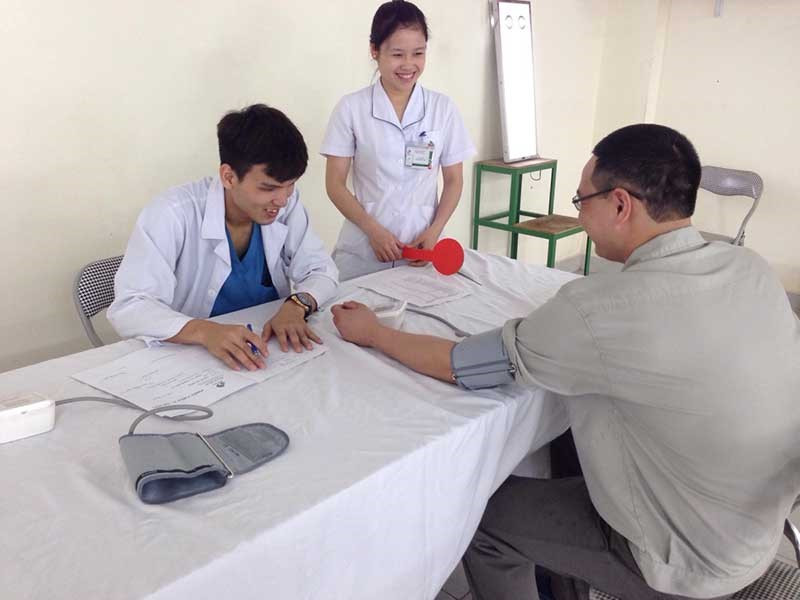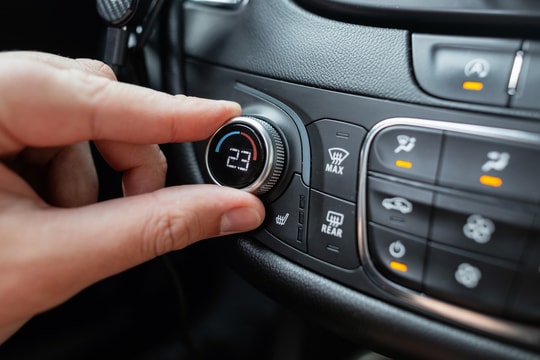Every age needs regular health checkups.
Life is a process of accumulating age. Everything from food, activities, work, environment... impacts and changes the body every day at every level, from small levels like cells to larger levels like the structure and function of the body.
Any age needs to see a doctor
When do people start getting regular health checkups?
• At birth, the neonatologist must examine the baby as a whole to see if there are any potential external or internal abnormalities. Any early and timely treatment will be effective for the baby.
• 1-15 years old: Parents often do not think that their children need regular check-ups. In fact, parents should take their children to the doctor for evaluation and advice on vaccinations, monitoring of height and weight development, diseases such as eye refractive disorders, ear, nose and throat infections, early detection and adjustment of sitting posture when there is a risk of hunchback, scoliosis... Many children discover their illness late, leading to bow legs, scoliosis or very severe myopia... During puberty, it is necessary to pay attention to check-ups when children's psychology and physiology change.
• In today's age of breaking buffalo horns, many young people can suffer from obesity, metabolic disorders, high blood pressure... These young people need regular health check-ups to get advice on changing their living, working, studying, and eating habits to help prevent cardiovascular diseases and metabolic disorders from appearing early. Currently, many malignant diseases are also detected in young people.
• Middle age is also past half of a person's life, the body appears chronic diseases in the cardiovascular, digestive, respiratory, musculoskeletal systems... In addition, infectious diseases such as tuberculosis, parasites, viruses... also need attention. Some benign or malignant tumors can be detected early through regular check-ups. Early treatment brings very high treatment efficiency.
• In the elderly, the accumulation of life processes, the risk of chronic diseases, diseases requiring regular treatment, infections, malignant diseases... so regular health check-ups are essential and important.
 |
| Regular health check-ups are needed at all ages. Illustrative photo |
There are so many things to check out.
How often should you have a health check? For young people without chronic diseases, check once a year. For older people with chronic diseases, check once every six months.
What should be checked during a health check? During a regular check-up, checking height and weight is mandatory. Many people ignore it, and medical facilities are superficial about height and weight. In fact, this step is very important, showing us obesity through BMI, predicting cardiovascular and metabolic diseases. Measuring blood pressure and heart rate also tells us about cardiovascular and endocrine status.
Need to see eye, ear, nose and throat specialists, maxillofacial specialists, general outside. Teeth and hair are the root of a person but many people do not pay attention to this and ignore or just have a cursory examination.
Chest X-rays are required annually to evaluate for pulmonary tuberculosis or cardiovascular disease.
Blood tests, liver and kidney function, and urine tests are routine tests for everyone. In young adults and older, blood sugar and lipid tests are indicated.
Annual general abdominal ultrasound helps to evaluate the overall image of the organs in the abdomen.
Then, depending on the individual characteristics as mentioned above, the examining doctor may recommend additional tests such as: electrocardiogram, echocardiogram; bone density measurement; chest ultrasound, mammography; thyroid ultrasound; vaginal smear, cervical endoscopy; stool test and rectal examination; PSA test; gastric and colonoscopy every five years. And in some necessary cases, the examining doctor may recommend a specialist for further examination or consultation with other doctors.
According to PLO
| RELATED NEWS |
|---|








